Chinese military runs intimidating simulation drills in Shenzhen, across from Hong Kong
A nearby bridge could bring the troops into Hong Kong within 10 minutes.
SHENZHEN, CHINA -- It was like any other Saturday evening on the promenade outside the large stadium in Shenzhen, a large Chinese city on the bay that forms the northwestern border of Hong Kong.
The throbbing bass of Chinese dance music blasted from portable loudspeakers as competing groups of mostly middle-aged square dancers, commonly found after sunset in most Chinese cities, battled with dance moves.
Yet on this night, the music was competing with roars coming from inside the nearby Shenzhen Bay Sports Center. Families walking by with young children stopped, gawked and listened. Then a stern voice came over the loudspeaker.
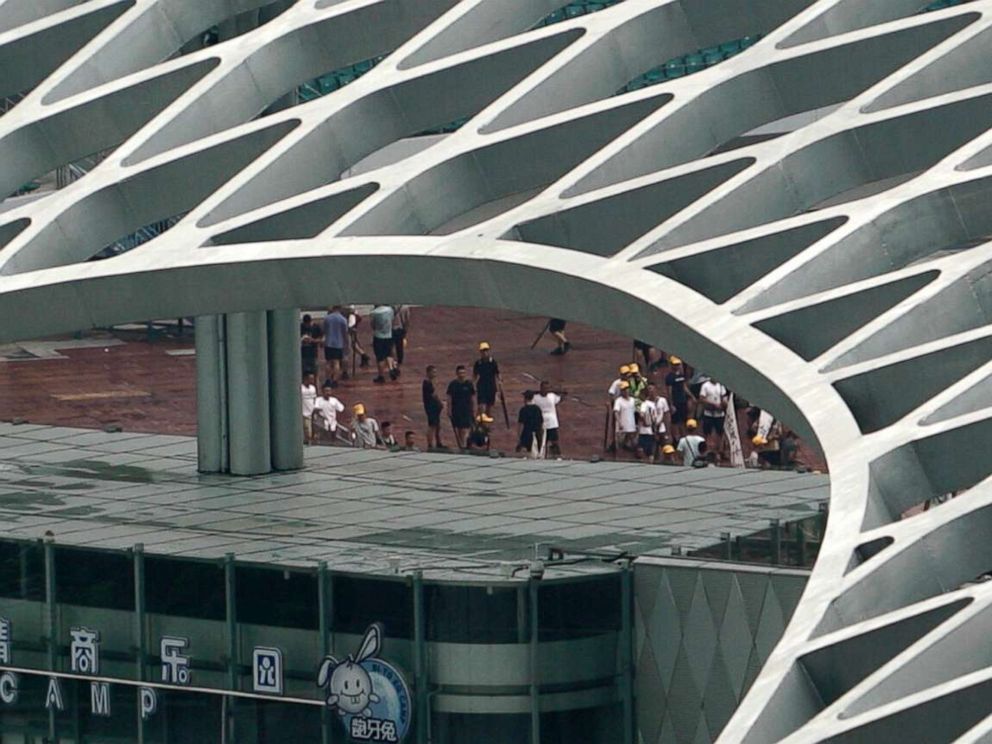
"Attention civilians, it is our responsibility to ensure social stability and to protect people's lives and property," the voice shouted in Mandarin Chinese.
It was clear a game wasn't being played inside the multi-use stadium that once hosted the World University Games.
"Respect the law," the disembodied voice continued. "Your actions have now initiated our operation. For your safety, please leave the area immediately."
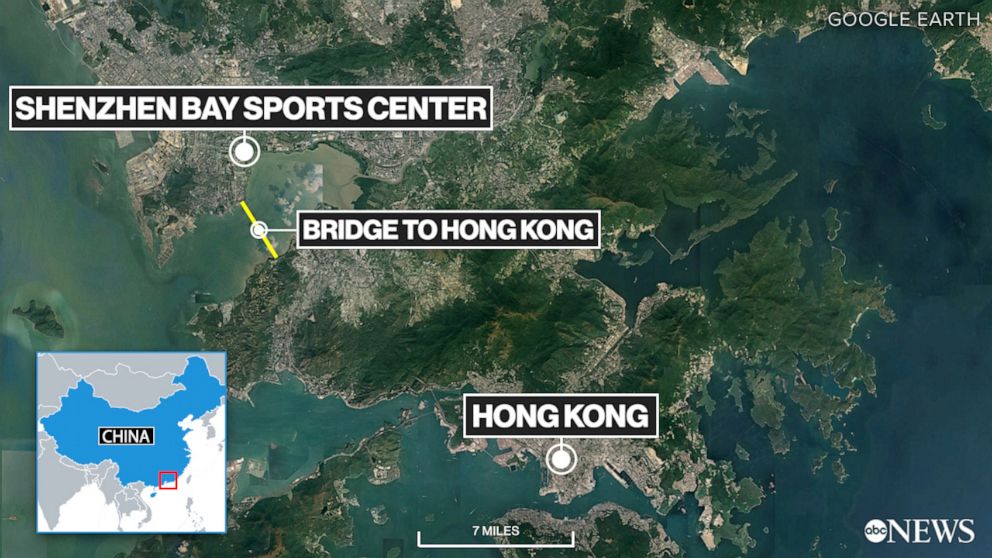
The warning was then repeated in Cantonese and English. Shenzhen, a migrant metropolis, speaks mainly Mandarin, but its neighbor to south, Hong Kong, speaks Cantonese and English.
The People's Armed Police, the paramilitary wing of the Chinese military, has been running daily simulation drills inside the sports stadium just across the Shenzhen Bay from Hong Kong.
Beijing has massed troops here for the last two weeks as a response and veiled threat to the increasingly violent protests just over the border in neighboring Hong Kong now entering their 12th week with no end in sight. A nearby bridge could bring the troops into one of the world's financial centers within 10 minutes.
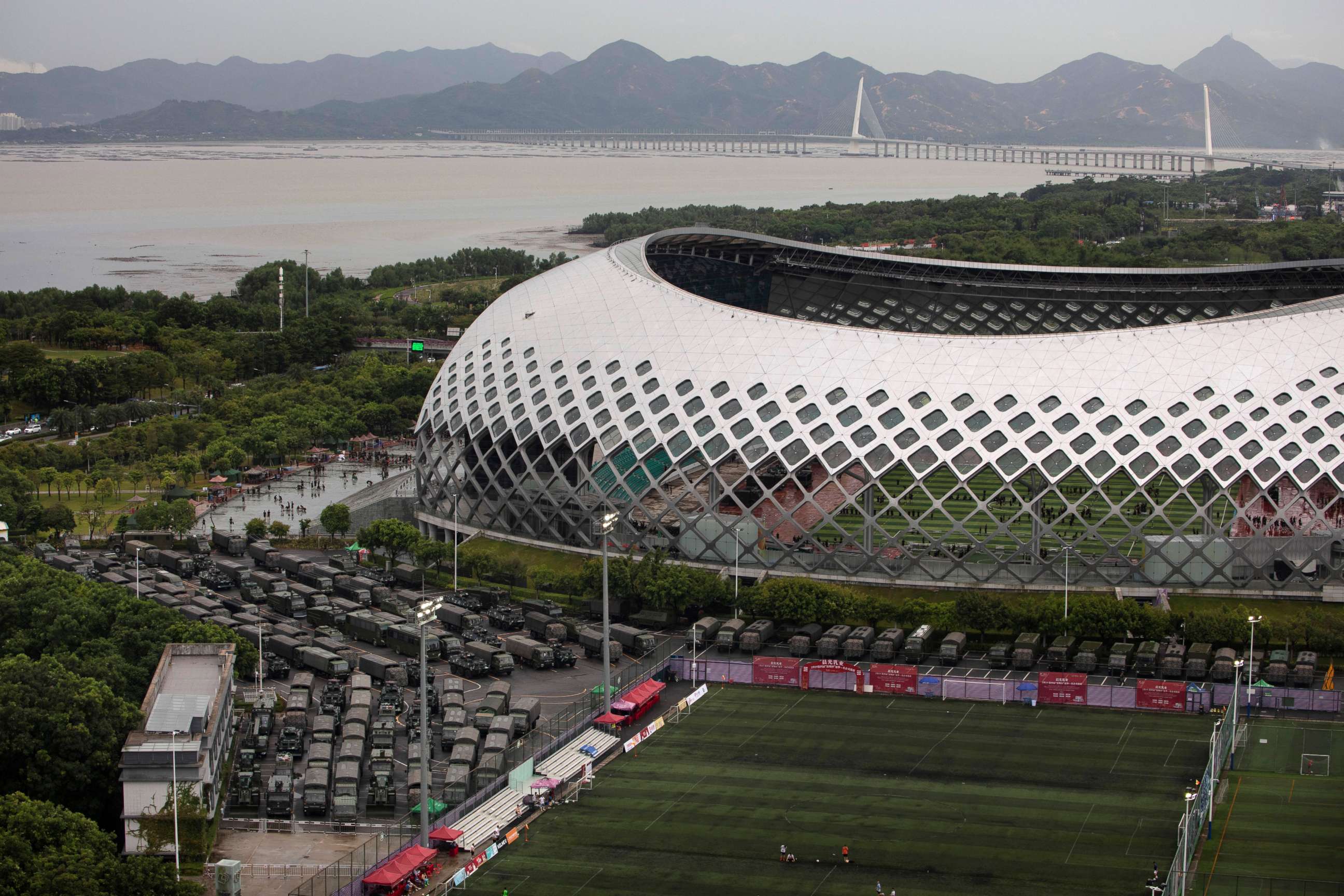
ABC News caught a glimpse inside the Shenzhen Bay Sports Center, seeing members of People's Armed Police in civilian clothing, role-playing the Hong Kong protesters, complete with yellow headgear, laser pens and long rods on the soccer pitch, facing off with their uniformed compatriots, who were advancing with riot shields and flags.
Access into stadium has been sealed, but even from the outside, signs of the soldiers' presence is unmistakable, as rows of camouflaged fatigues with the People's Armed Police insignia were being hung out to dry.
Meanwhile, the parking lot was filled to capacity with armored vehicles and troops transports. ABC News counted at least 130 visible vehicles with many more inside the stadium, including earth movers and water cannon trucks that were being tested, sending powerful jets of water shooting through the air.
Ever since Beijing upped the ante of possible direct intervention, the world has been holding its collective breath to see if they will or won't send boots on the ground into Hong Kong.
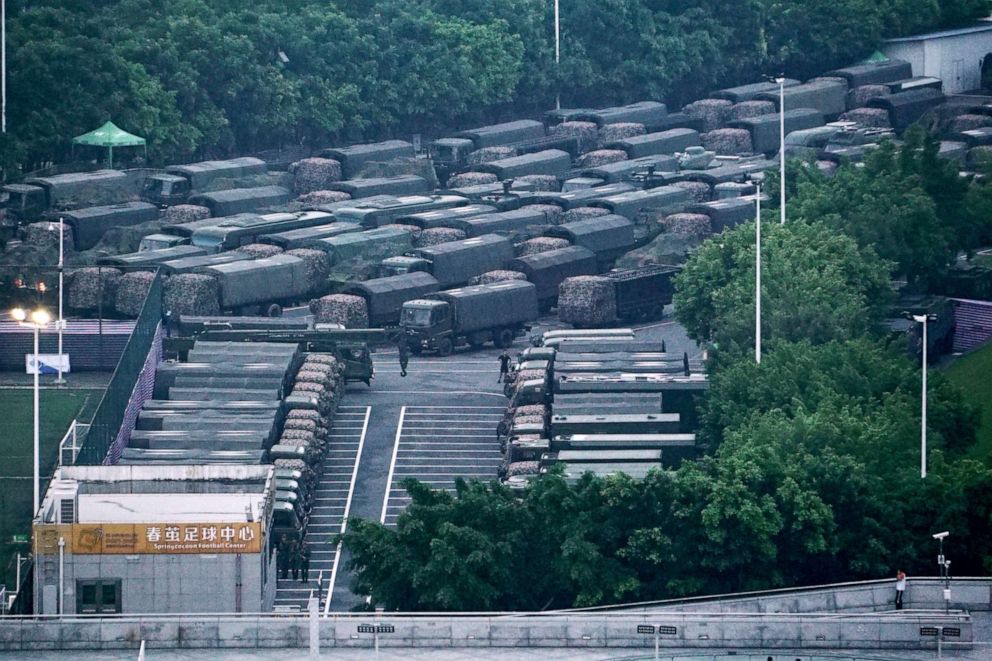
Chinese State Media has been for weeks normalizing the once-unimaginable of idea of intervening, calling the protests a "color revolution" intent on separating Hong Kong from the motherland.
On Sunday, the Xinhua News Agency ran an editorial citing the late Chinese leader Deng Xiaoping, who opened up China and negotiated Hong Kong return from Britain.
"Deng Xiaoping pointed out long ago, 'If there is turmoil, the central government will intervene.' The Basic Law [Hong Kong's mini constitution] and the Garrison Law have already made corresponding provisions. This is the power of the Central Government and the responsibility of the Central Government," the editorial reads.
The editorial then backs down, saying it hopes the Hong Kong government and police will restore order as soon as possible.
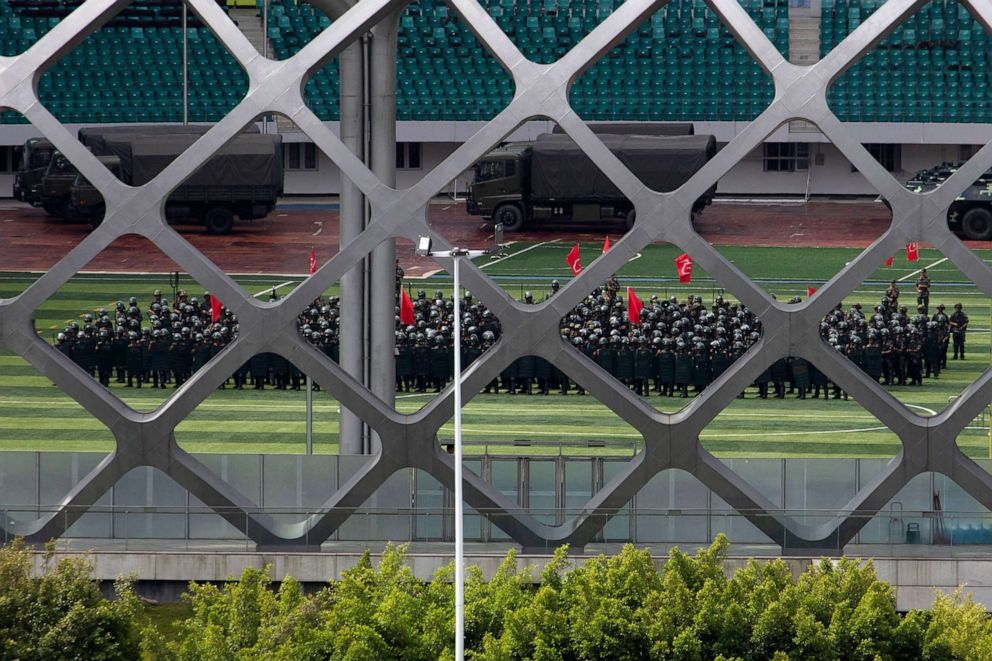
For the paramilitary police in and around the Shenzhen Bay Sports Center, it seemed like they are settling in, at least for the time being.
Many of the armored vehicles have been placed under covers, and while the troops have not been seen venturing out of the stadium, some of them can be seen in the stairwells playing cards.
Soon they may have more company than the square-dancing contingents. Later this week, the sports complex will begin hosting the FIBA Basketball World Cup. Basketball fans and the world's sports media will converge right next to where the paramilitary police are massed to watch France play Germany on Sunday.
It'll bring even more eyes on Beijing as it stews what could be a fateful and costly decision.



